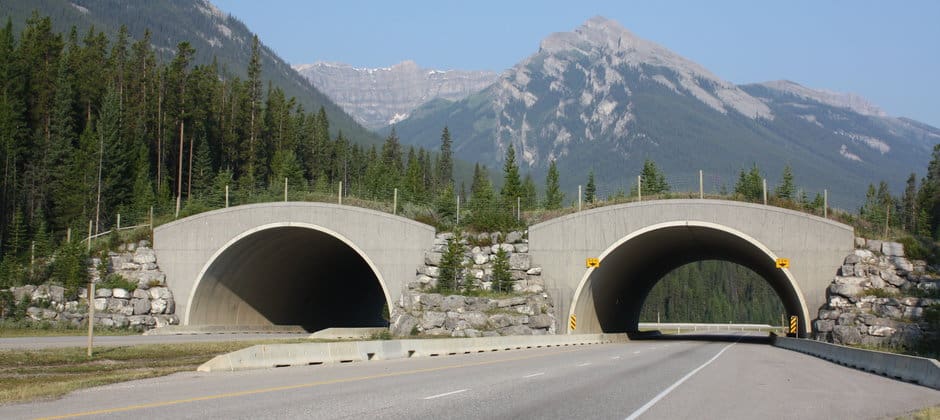Share this article
House releases transportation bill
A new draft transportation bill will include provisions related to wildlife-vehicle collisions and fund roads on National Wildlife Refuges and other federal lands.
Last month, the Wildlife Society joined nearly 40 other organizations representing natural resource professionals, conservationists and sportspersons in asking the House Transportation and Infrastructure Committee leadership to consider safe passage for wildlife over or under highways in upcoming transportation legislation.
Earlier this month, the Committee released the centerpiece of the House Democrat’s green infrastructure package, a surface transportation bill with nearly $500 billion in funding. The “Investing in a New Vision for the Environment and Surface Transportation (INVEST) in America Act” reauthorizes the current transportation bill and could serve as a vehicle for some related wildlife conservation priorities.
The INVEST Act includes provisions related to climate change mitigation, habitat connectivity and efforts to reduce wildlife-vehicle collisions. It also provides funding for road building and maintenance on National Wildlife Refuges and other federal lands.
The environmental and conservation provisions of the bill have a strong emphasis on climate change mitigation, such as requiring the Department of Transportation to establish a new greenhouse gas emissions performance measure. It also includes $8.35 billion in funding to help support programs that allow states to invest in highway, transit, and rail projects and holds states accountable by measuring their annual progress.
The bill also includes a section devoted to reducing wildlife-vehicle collisions and improving habitat connectivity through a nationwide study of such collisions, a standardized data tracking system and new national guidance to help determine when a state should put in place mitigation measures to reduce wildlife-vehicle collisions.
The letter signed by TWS encouraged the House to incorporate wildlife provisions included in the Senate transportation bill, which was approved by the Environment and Public Works Committee in January. A key component of that bill, not yet included in the House package, is the competitive Wildlife Crossing Pilot Program, which would provide $250 million over five years in competitive grants to states, tribes, and local governments for wildlife infrastructure projects that reduce the number of wildlife-vehicle collisions and improve habitat connectivity.
The Transportation and Infrastructure Committee plans to discuss the House bill during a markup scheduled on June 17. Leadership hopes to bring the legislation to the House floor for a vote on July 1. However, pressing issues competing for Congress’ limited time, such as the COVID-19 pandemic and the protests around the country demanding racial justice, could result in delays for the transportation package. Authorization provided in the 2015 Fixing America’s Surface Transportation (FAST) Act expires on Sept. 30.
Header Image: The House of Representatives is considering transportation legislation, which could provide funding for wildlife crossings. Credit: C. Hanchey








